#1977 Sci-Fi film
Explore tagged Tumblr posts
Text
Empire Of The Ants | Episode 377
New Post has been published on http://esonetwork.com/empire-of-the-ants/
Empire Of The Ants | Episode 377
Jim discusses a 1977 cult classic from Bert I. Gordon, “Empire Of The Ants,” starring Joan Collins, Robert Lansing, John David Carson, Albert Salmi, Jacqueline Scott, Pamela Susan Shoop, Robert Pine, Edward Power, Brooke Palance, Tom Fadden, Harry Holcombe and Irene Tedrow. A group of people encounter giant ants while on a tour of a proposed real estate development. But there is more to the story than that. Find out on this episode of MONSTER ATTACK!, The Podcast Dedicated To Old Monster Movies.
#1977 Sci-Fi film#Albert Salmi#Bert I. Gordon#Brooke Palance#Edward Power#Empire Of The Ants#ESO Network#geek podcast#Giant Ants#H.G. Wells#Harry Holcombe#Irene Tedrow#Jacqueline Scott#Jim Adams#Joan Collins#John David Carson#Monster Attack!#nerd podcast#Old Monster Movie#Old Sci-Fi Movie#Pamela Susan Shoop#Robert Lansing#Robert Pine#Tom Fadden
0 notes
Text
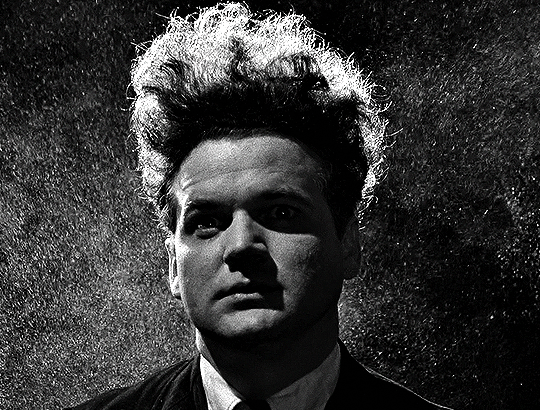


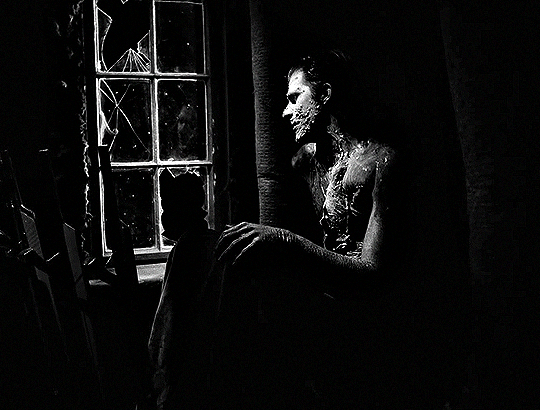

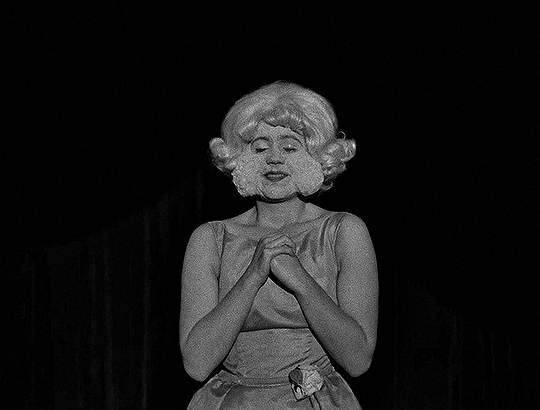
ERASERHEAD (1977) dir. David Lynch
#eraserhead#david lynch#filmedit#moviegifs#filmgifs#filmdaily#horroredit#scifiedit#cinemapix#userstream#userfilm#1970s#films#*mine#body horror tw#horror#sci fi#y: 1977
2K notes
·
View notes
Text
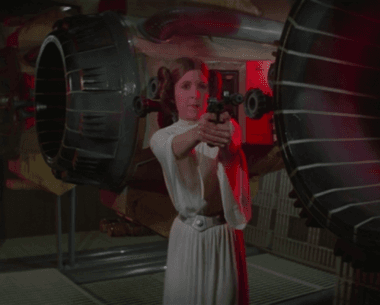
Carrie Fisher - Star Wars outtake (1977)
#carrie fisher gif#star wars behind the scenes gif#star wars bloopers gif#princess leia gif#star wars gif#film outtakes#episode iv#a new hope#70s sci-fi#70s movies#seventies#1977#gif#chronoscaph gif
1K notes
·
View notes
Text
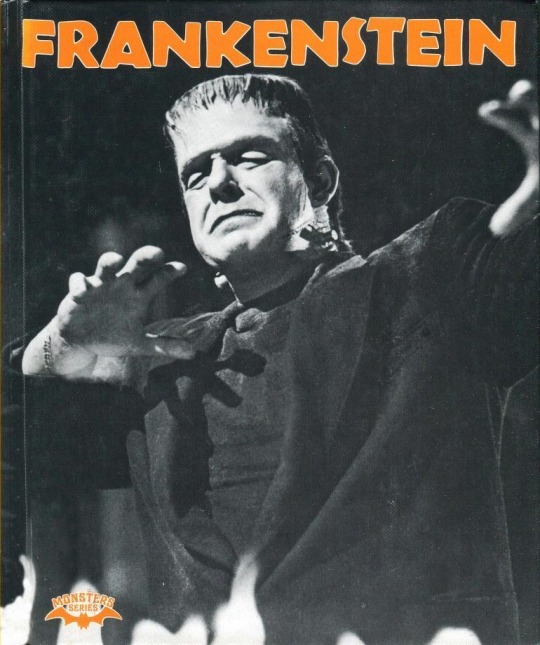
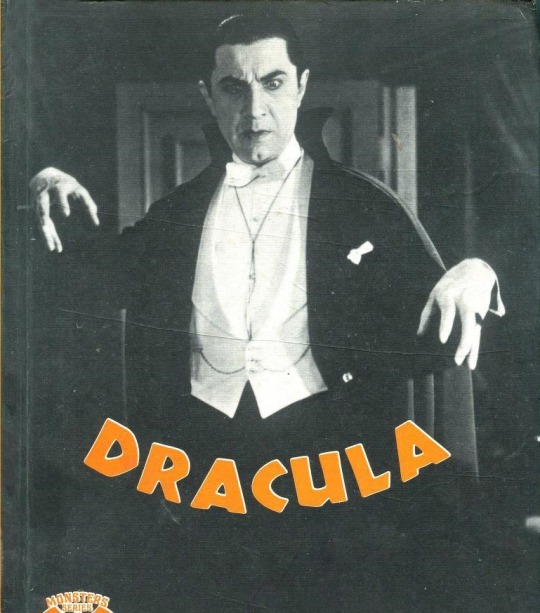

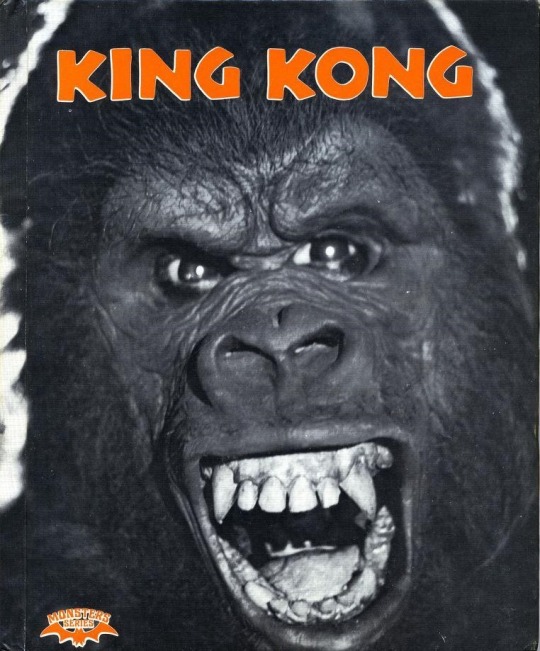
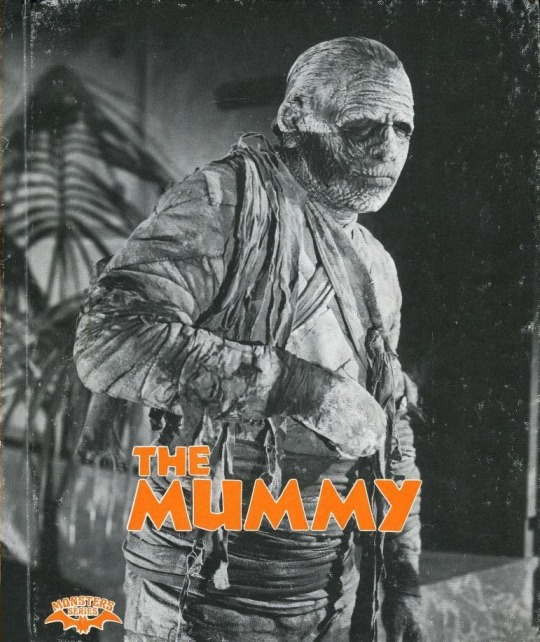

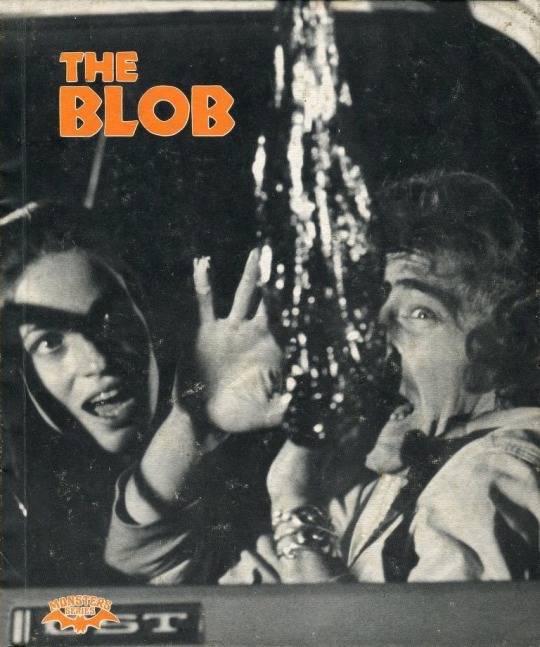

Crestwood Monsters Series, 1977
#Horror#movies#cinema#film#1970's#70's#Universal Monsters#Dracula#Frankenstein#The Mummy#The Wolf Man#The Blob#The Deadly Mantis#the invisible man#King Kong#Godzilla#sci-fi#science fiction#Crestwood Monsters Series#1977#cover#cover books#books#book#covers
299 notes
·
View notes
Text
On March 14, 1978, Close Encounters of the Third Kind debuted in the United Kingdom.

#close encounters of the third kind 1977#close encounters of the third kind#steven spielberg#richard dreyfuss#alien invasion film#alien invasion#science fiction film#science fiction art#science fiction#trash art#fan art#1970s movies#1970s sci fi#movie art#1970s science fiction#art#drawing#movie history#pop art#modern art#pop surrealism#cult movies#portrait#cult film
3 notes
·
View notes
Text

c l o s e e n c o u n t e r s o f t h e t h i r d k i n d, 1977 🎬 dir. steven spielberg
#film#sci fi#Close Encounters of the Third Kind#Close Encounters of the Third Kind 1977#steven spielberg#film poster#movie poster
1 note
·
View note
Text
The galaxy of Star Wars is expanding once again as plans take shape to translate the original 1977 Hollywood hit into the Ojibwe language. Lucasfilm, the Dakota Ojibway Tribal Council and the University of Manitoba said they’ve reached an agreement to record a dubbed Ojibwe version of Star Wars: A New Hope. The first film in George Lucas’ popular sci-fi series introduces many of the beloved characters, including Jedi Knight Luke Skywalker, Princess Leia and Han Solo and his Wookiee co-pilot, Chewbacca.
Continue Reading
Tagging @politicsofcanada
#cdnpoli#canada#canadian politics#canadian news#indigenous#first nations#ojibwe#ojibwe language#star wars#language preservation
212 notes
·
View notes
Text
I know that independent film as a broad genre became about pushing boundaries and doing things that were considered too dark/crass/experimental for mainstream film, but I wish that more indie filmmakers and creators in general just wanted to make fun movies. In 1977 the box office was topped by two indie films: Smokey and the Bandit as the second highest grossing film of the year, and a little thing that no one's ever heard of and that definitely didn't reshape sci-fi as a genre or anything, that obscure indie movie called Star Wars.
There is absolutely an important place for what we think as "typical" indie films, and maybe tons of examples of the types of fun adventure or comedy movies made by indie directors exist. I just wish they got more attention because I certainly never hear about them.
36 notes
·
View notes
Note
Hiiii I have a community question I wanted to ask!!
Abed mentions all sorts of movies and tv shows through out Community, but I just wanted to know if maybe you have like a list of which ones are real and which ones he seemed to like more than others.
I can only think of the dark knight because of the dvd Annie broke, and the Star Wars movies (except he apparently hates the prequels) and cougar town!
great question! sorry for the delay on a response.
so, he mentions/references an insane number of movies and tv shows throughout the series, and I unfortunately do not have a list of every single one. although, I am (VERY slowly) working on an in-depth episode-by-episode analysis of the entire series, and listing every pop culture reference is a subsection in that. but that's not helpful right now. moving on
I don't have the picture, but there's this questionnaire abed filled out (outside of the show, it must have been uploaded to a website as promotional material for the show). he says his favorite movie is a tie between:
ghostbusters (1984, comedy/horror)
an american werewolf in london (1981, horror)
back to the future (1985, sci-fi/comedy)
blade runner (1982, sci-fi/action)
stand by me (1986, adventure/comedy)
stripes (1981, comedy/war)
star wars (1977, sci-fi/fantasy, also called "a new hope")
star wars: the empire strikes back (1980, sci-fi/fantasy)
star wars: the return of the jedi (1983, sci-fi/fantasy)
ferris bueller's day off (1986, comedy/drama)
jaws (1975, thriller/adventure)
raising arizona (1987, comedy/crime)
jurassic park (1993, adventure/sci-fi)
seven (1995, crime/mystery)
the matrix (1999, action/sci-fi)
the goonies (1985, adventure/comedy)
the breakfast club (1985, comedy/romance)
real genius (1985, comedy/sci-fi)
better off dead (1985, comedy/romance)
the fog of war (2003, documentary/war)
pulp fiction (1994, crime/thriller)
(btw if anyone knows what I’m talking about and has the screenshot please rb with it! I cannot for the life of me find it lmao)
I believe this is a list he apparently made in 2009, either in the first few weeks of school or right before the school year started. so it's possible he would answer differently as the series progressed. also, I do take some of these extra-canon things with a grain of salt, as on the same form he said his favorite place on campus was study room D or something, when obviously they definitely meant to write study room F. so, the credibility of my source for this information isn't exactly rock-solid. although, he does mention a lot of these movies on screen, and expresses love for many of them (the most notable ones probably being star wars episodes IV-VI, the breakfast club, and pulp fiction)
as you can see from the list, abed particularly loves american movies from the 80's. just a trend I thought I’d point out.
here's a few others he mentions loving, or just pretty notably references:
the dark night (2008, action/crime, as you mentioned)
rudolph the red-nosed reindeer (1964, musical/animated, is the whole basis of 2x11 abed's uncontrollable christmas)
the shawshank redemption (1994, horror/crime, is the basis for his plot with troy, annie, and shirley in 4x05 cooperative escapism in familial relations)
freaky friday (I believe it's the original one from 1976 specifically, but it's been remade a bunch. comedy/fantasy. it's the basis of abed and troy's story in 4x11 basic human anatomy)
rambo/first blood (series starting in 1982, action/thriller. abed talks about how messy the progressive series titles are in 3x14 pillows and blankets)
ocean's eleven (2001, crime/thriller, the basis for the heist scene from 3x21 the first chang dynasty)
hearts of darkness (1991, documentary/war, abed mentions it while pointedly filming dean pelton's production of his greendale commercial rather than helping with the commercial itself. similarly, hearts of darkness filmed the making of apocalypse now)
apocalypse now (1979, war/action, see the above explanation)
die hard (series starting in 1988, action/thriller, abed mentions wanting to do a die hard homage for christmas multiple times throughout season 4)
good will hunting (1997, thriller/romance, troy and abed's story in 1x24 english as a second language is filled with references to this movie. abed is doing homages on purpose, troy is not)
my dinner with andre (1981, comedy/drama, abed does a very elaborate homage at jeff's accidental expense in 2x19 critical film studies)
indiana jones (raiders of the lost ark, temple of doom, and the last cruscade only. he mentions loving the first three indiana jones movies in 1x04 social psychology)
aliens (1986, action/adventure/sci-fi, he and troy dress up as an alien and ripley in 2x06 epidemiology) (side note, I believe they're specifically referencing aliens, which is a sequel to alien. could be wrong though)
blade (1998, horror/action, they watch it over the course of 3x15 origins of vampire mythology after troy and abed assert multiple times that it is an amazing movie)
I think he generally talks about movies more than he talks about tv shows, but he does mention quite a few of them. some notable mentions are:
friends (1994, sitcom, mentions at least twice)
m*a*s*h (1972, sitcom, mentions in passing in 1x05 advanced criminal law, and references throughout 1x13 investigative journalism)
the cape (2011, action, mentions throughout 4x13 advanced introduction to finality)
who's the boss (1984, sitcom, is the premise of his whole storyline in 2x20 competitive wine tasting)
LOST (2004, sci-fi, mentions at least twice)
obviously there are a LOT more, but I just tried to list some of the most important ones, plot-wise and for understanding of his character. hopefully I’ll be able to get back to everyone with a super long list of every tv show and movie he ever mentions lmao, but that'll take a while. (there are lists online that say they list every movie and tv show abed has ever mentioned, but ngl I don't 100% trust those, so I’ll make my own lmao. but I put the link to one of them if you're curious. here's another one too)
at this point anyone who has seen community knows there are some really really big ones that I haven’t mentioned yet. pieces of media that are INTEGRAL to abed as a character. I was saving them for last lmfao. they are:
kickpuncher
inspector spacetime
cougar town
if I had to pick a holy trinity of media for abed, it would be these three things. these are EASILY the things he talks about the most, which is interesting, as both the kickpuncher movie franchise and the inspector spacetime series are completely fictional, and only exist in the community universe. (this is probably so they can show abed actually watching some of the shows/movies he talks about, without the obvious copyright issues that come with playing clips from an already existing movie/tv show on your screen. they kind of do that with blade in 3x15, but they only play vague fighting sounds, and never show their tv on our screen. anyway. not relevant.) to answer one of your questions from the ask, I believe those two are the ONLY fictional pieces of media abed talks about. as far as I know, everything else he mentions is real, including cougar town.
kickpuncher is obviously reminiscent of sci-fi/action films from the 80's, like robocop. like I said earlier, taking their place so that they could have a more substantial role in abed's on-screen life without any copywrite worries. it's a whole franchise, so there are multiple movies: kickpuncher, kickpuncher 2: codename: punchkicker, kickpuncher 3: the final kickening, kickpuncher: detroit, kickpuncher: miami (?), and kicksplasher (?). kicksplasher is apparently shown as a poster on abed's wall, and I’m assuming it's from the same franchise, although that could be wrong. the point is there's a very elaborate universe for kickpuncher, and it's a big part of abed's, and later troy's, film taste. the first time they mention it is in 1x15 romantic expressionism, when abed, troy, shirley, pierce, and chang all get together in abed's dorm room to make fun of stupid movies together. it's funny that it was introduced as a stupid movie to watch ironically, then troy and abed both end up genuinely loving it lmao. classic
inspector spacetime is obviously reminiscent of doctor who. they're both british sci-fi series that have been running for decades. doctor who uses a police box to travel the multiverse, while doctor who uses a telephone box. doctor who has malicious daleks who chant "exterminate," while inspector spacetime has blorgons who shout "eradicate." the concepts of the shows are obviously the same, with the actor for the doctor changing every season, etc etc. they're essentially the same exact show, but, like I said before, changed slightly so they can world-build without getting copywrited. there is something a little bit silly about this, though. it's definitely a continuity error and it's up to everyone whether they want to accept it as canon or not, I guess, but there's an episode where abed is actually wearing a doctor who t-shirt. (it also references bill and ted, but the doctor who part is what's relevant.) here's some pictures:

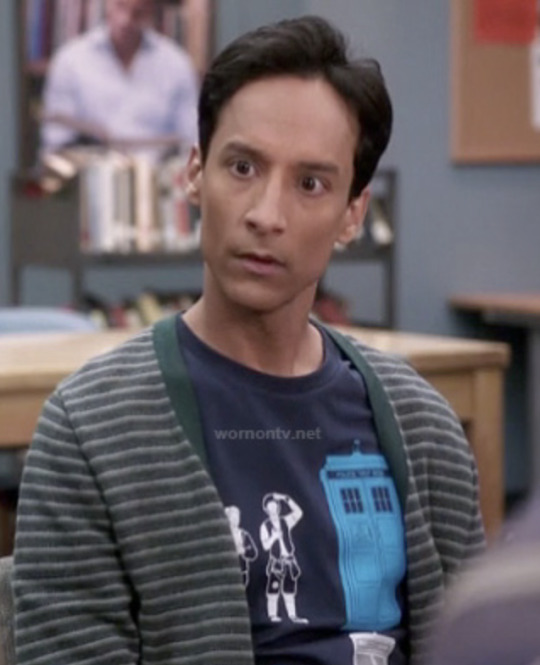
awesome shirt tbh, but it is a little bit funny that is essentially makes it true that doctor who and inspector spacetime both exist in the community universe. and, these pictures are from the cold open of 4x11 basic human anatomy, which is way after inspector spacetime is introduced to the show (3x01 biology 101). so, is inspector spacetime just a rip-off of doctor who? is abed a fan of both shows? if he is, clearly he likes inspector spacetime better. anyway. I would guess that this wasn't intentional. but that is definitely a tardis on that shirt. maybe it's just a classic season 4 continuity mistake. oh well. I guess that's just how the cookie crumbles. anyway.
cougar town time! yes, it's a real show. I didn't think it was but it is. what's not real is cougarton abbey, the short-lived british remake that britta gets abed into in 3x01 biology 101. but yeah. it has 6 seasons and is streaming on hulu, if you're interested. I’ve heard it's not good but who knows for sure. something cool about cougar town is that abed is actually in an episode. let me be clear: not danny pudi. ABED. it's similar to the story abed tells about being invited to the cougar town set and shitting his pants while having an existential crisis about the layers of reality. here is a youtube clip of the scene. I found out about it while stalking danny pudi's wikipedia page months ago, you know, a typical sunday afternoon activity, and I saw a cougar town credit on there. I didn't even know it was a real show at that point so you can imagine my surprise lmao. anyway. idk if you knew that already but it's one of my favorite community easter eggs. so funny.
okay! I hope this is enough information to suit your needs, and I am once again opening the floor to anyone who wants to add anything 💯 this was fun, thanks for the ask, and stay fresh everyone ✌️
#classic sadquickchristmassnowman blunder of writing an entire goddamn essay to answer a simple fucking question#also just to be clear george lucas went back and fucked with the original star wars trilogy#so unless you really put some work in to find the original versions of the original trilogy#you won’t be watching the versions that abed loves the most#sorry my indoctrinated me into his elitist star wars opinions#but I’m keeping it in the tags as to not clutter up the information with more of my senseless yapping#anyway#community#nbc community#community nbc#abed nadir#media analysis#community encyclopedia
88 notes
·
View notes
Text










Cult Moody’s 31 Films for Halloween 2024: - Group 2
My yearly Halloween film selections to celebrate the holiday! These include horror, sci-fi, cult, B-Movie or Exploitation films I have never seen
11. The Rats Are Coming! The Werewolves Are Here! (1972)
12 The Demoniacs (1974)
13. Tarantulas: The Deadly Cargo (1977)
14. Slithis (1978)
15. The Bermuda Depths (1978)
16. Nosferatu the Vampyre (1979)
17. The Boogens (1981)
18. Calamity of Snakes (1982)
19. The Beast and the Magic Sword (1983)
20. Celia (1989)
Part 1 -
#Halloween#31FilmsforHalloween#horror#HorrorMovies#Movies#cinema#31DaysOfHorror#31DaysOfHalloween#he Rats Are Coming! The Werewolves Are Here!#The Demoniacs#Tarantulas: The Deadly Cargo#Slithis#The Bermuda Depths#The Boogens#Nosferatu the Vampyre#Calamity of Snakes#The Beast and the Magic Sword#Celia#Werner Herzog#Klaus Kinski#Paul Naschy#Andy Milligan#Rankin Bass#Carl Weathers
12 notes
·
View notes
Text










50 years of covering upsets! Crazy stuff :)
Separating the artist from his work, Annie Hall would definitely rank high on my favorites list. Practically every scene is a bit, keeping the humor fresh and fast-paced at just over 90 minutes. The cast is also stacked with big names. Diane Keaton in particular is incredibly endearing as Annie. Do I want to be her, or do I want to be with her? Jury is still out 😉.
Upon rewatch, I also realized just how much Annie Hall relies on niche pop culture knowledge for comedy. Could it be a bit too pretentious? Not sure. I was able to recognize a lot more the second time around, having seen plenty of new films in between watches.
Fantasy is top on my list of genres that I don't generally care for, along with sci-fi, sports, and most pure adventure. That's why I'm only now seeing Star Wars for the first time, after watching every other Best Picture winner! I did appreciate the first film of this franchise but doubt I'll get to watching the rest any time soon.
As Vincent Camby mentions, the plot can be summarized in probably 2 sentences. You watch it for the effects, John Williams' score, and to satisfy the sci-fi loving child in you, not for an intellectually stimulating experience. Large budget and box office (the $300M being the original 1977 run only) with a remarkable cast.
If you're new here, the insights page shows how the Winner and Upset stack up again the Average Winner (Ave W) and Average Upset (Ave U) I've covered so far. Feel free to scroll back to see what you've missed!!
Three films received 11 nominations at the 50th Academy awards - Julia, Star Wars, and The Turning Point. Julia took supporting acting and screenplay, Star Wars dominated the below-the-line categories, and The Turning Point set a new record for most nominations without a single win.
That left Annie Hall winning 4 of the 5 Big 5, losing Best actor to Richard Dreyfuss. Annie Hall took 4 of the same at the BAFTAs as well, but missed out on all but one for Diane Keaton at the Golden Globes.
Despite being heavily nominated, the majority of additional awards for Star Wars were for its score and sound. John Williams alone won 3 Grammy's that year for Star Wars: Instrumental Composition, Original Score, and Pop Instrumental Performance.
And that's all I got for this one. You can find these two on practically any top film list, especially the AFI series. Star Wars is listed as the #1 score, and Annie Hall is ranked #4 for "laughs".
Unofficial Review: Honestly this one is tough. I only really had one critic that listed Star Wars as the upset. Most state that Annie Hall should have won. I prefer Annie Hall, but I enjoyed Star Wars too!
#oscars#academy awards#50th academy awards#annie hall#annie hall 1977#star wars#star wars a new hope#star wars 1977#1970s#film#1970s film#oscarupsets
4 notes
·
View notes
Text
Zak Bagans LEGACY Explained - Ghost Adventures History 👻
youtube
January 22, 2025
Zak Bagans was born on April 5, 1977, in Washington, D.C., but it was in the quiet town of Glen Ellyn, Illinois, where his fascination with the supernatural began. As a young boy, Zak was intrigued by the unknown, often exploring the creaky attics and dusty basements of his childhood home, imagining what secrets they might hold. His life took a pivotal turn when he moved to Las Vegas to chase his dreams of documentary filmmaking. However, it was an encounter in 2002 in Trenton, Michigan, that would set his path irrevocably towards the paranormal. Zak lived in an apartment where he experienced what he believed to be an interaction with the spirit of a woman who had taken her own life in the bathroom he used. This event was not just a scare; it was a call to action. Fuelled by this experience, Zak, along with Nick Groff and Aaron Goodwin, decided to document their explorations into the unknown, leading to the creation of the "Ghost Adventures" documentary in 2004. This project was more than just a film; it was the beginning of a legacy. The documentary aired on the Sci-Fi Channel in 2007, but it was the subsequent series on the Travel Channel in 2008 that catapulted Zak into the public eye as a serious paranormal investigator. The show "Ghost Adventures" became a cultural phenomenon, offering viewers a mix of genuine fear, curiosity, and skepticism. Zak's approach was not just about seeking thrills; he was on a quest for understanding, using a blend of historical research, modern technology, and personal intuition. His method often involved direct confrontation with spirits, which led to some of the most memorable moments of the series, like his encounters at Bobby Mackey's Music World or the infamous Poveglia Island in Italy. Over the years, Zak's personal life became as entwined with the paranormal as his professional one. He opened Zak Bagans' The Haunted Museum in Las Vegas in 2017, where he houses some of the most infamous haunted artifacts collected during his investigations. Each item, from the Dybbuk Box to Bela Lugosi's mirror, has its own chilling backstory, turning the museum into a repository of both history and horror. But with fame came scrutiny. Critics often accused "Ghost Adventures" of staging events, which Zak met with a mix of frustration and determination to prove his authenticity. His response was to delve deeper, producing shows like "Deadly Possessions" and "Demon House," where he not only showcased haunted objects but also documented his own psychological and physical battles with dark entities. Zak's journey into the paranormal world was not without its toll. He often spoke of the emotional and physical exhaustion that came with his work, especially after investigations that left him feeling ill or spiritually drained, like his experience at the real-life Conjuring House. Despite this, or perhaps because of it, Zak continued, driven by a belief that his work could offer solace or answers to those haunted by their own experiences. Today, Zak Bagans remains a figure of both fascination and controversy, a man committed to bridging the gap between the living and what might lie beyond. His life is a testament to the idea that some questions about life and death are worth pursuing, even if they lead down the darkest corridors. His story continues, with each investigation adding another chapter to his ongoing narrative of seeking the truth in the shadows.
Source: Ghost Adventures Fans (YouTube)
3 notes
·
View notes
Text
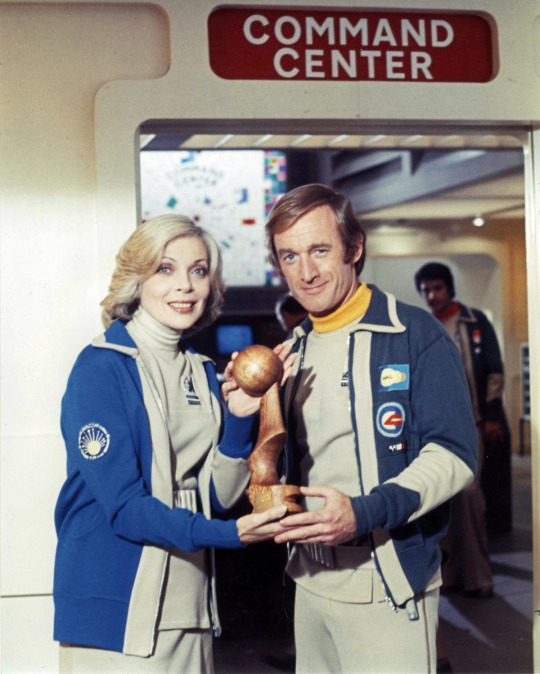
Space: 1999 Stars Barbara Bain & Nick Tate Goes Board Documentary About Sci-Fi Show’s Legendary Spacecraft
Actress Barbara Bain, star of the British sci-fi series Space: 1999, is preparing to board an upcoming documentary about the Eagle, the famed spacecraft at the heart of the show that ran from 1975-1977.
Bain will appear in The Eagle Has Landed as will Nick Tate, her cast mate from Space: 1999. The documentary includes the participation of several other notable figures: Apollo XVI astronaut Charles Duke Jr., Academy Award-winning visual effects artist Bill George (Blade Runner, Star Trek), and Brian Johnson, the VFX artist on Space: 1999 whose work is said to have influenced Star Wars. The film is being directed and produced by Jeffrey Morris, who also hosts the documentary.

The Eagle Has Landed “explores the cross-generational impact of the iconic vessel” in the series that also starred Martin Landau. According to a press release, the film “showcases never-before-seen archival footage” and will be released in time for the 50th anniversary of Space: 1999’s debut, in 2025.
“Space: 1999 appeared on TV a few short years after the world watched Neil Armstrong take the first steps on the moon,” Morris noted in a statement. “The show’s unforgettable Eagle inspired a generation to envision a future in space and is still doing so decades later. The question we explore is ‘why?’ What is it about this imaginary craft that has captured and held imaginations for nearly 50 years?

Morris’s FutureDude Entertainment is producing the documentary in partnership with Zero Point Zero Production Inc. Anne Marie Gillen is a producer on the project, along with Morris. The film is written by Morris and Fredrick Haugen. Morris is represented by Espada Entertainment.
Space: 1999 ran for a total of 48 episodes, with Bain and Landau in all of them as, respectively, Dr. Helena Russell and Commander John Koenig (the actors were married to each other at the time; they had previously co-starred together in Mission: Impossible).

The show revolved around the denizens of Moonbase Alpha, scientific researchers living on the moon whose existence was threatened by a nuclear explosion, which rocketed the moon out of Earth’s orbit. Tate, an Australian-born actor, played pilot Alan Carter on 42 of the show’s 48 episodes. Originally, his character was to be killed off in the premiere episode, a casualty of the nuclear explosion, but producers Gerry Anderson and Sylvia Anderson liked his work and expanded his role.

“Hovering above the Moon in one of Alpha’s Eagle spacecraft, Alan Carter is an observer to this holocaust, watching helplessly as the Moon spins out into space,” according to a synopsis published by the Catacombs.Space1999.net website. “Sacrificing his only chance to return home, Carter decides to give chase to the runaway Moon, joining his friends on the endless intergalactic journey.”
Tate told the website, “I didn’t have to dig too deeply with this character. Alan Carter was all the things I was as a young man: friendly, happy-go-lucky, someone who loved adventure and accepted a challenge.”
Ian McShane, Joan Collins, and Leo McKern were among actors who appeared in single episodes of Space: 1999.
youtube
#Space: 1999#The Eagle Has Landed#Jeffrey Morris#Brian Johnson#Eagle Transporter#Gerry Anderson#Sylvia Anderson#ITC Entertainment#Star Wars#Barbara Bain#Martin Landau#Nick Tate#Catherine Schell#documentary#Breakaway Day#Youtube
32 notes
·
View notes
Text
On February 13, 1981 the Special Edition version of Close Encounters of the Third Kind debuted in Finland.

#close encounters of the third kind 1977#close encounters of the third kind#steven spielberg#richard dreyfuss#science fiction film#science fiction art#science fiction#70s sci fi movies#70s sci fi art#70s science fiction#sci fi#scifi#art#movie art#drawing#movie history#pop art#modern art#pop surrealism#cult movies#portrait#cult film
1 note
·
View note
Text
Forty-seven years ago today, everything changed. True believers might already know what it was: On May 25, 1977, Star Wars hit movie theaters and irrevocably altered nearly everything pertaining to the act of moviegoing. Lines around the block, overly excited nerds, an appetite for action figures. Star Wars taught Hollywood that certain genres—sci-fi, fantasy, anything that percolated in the offbeat TV shows, books, and comics of the 1950s and ’60s—had fans, and those fandoms would show up. Star Wars made a meager $1.6 million in the US in its opening weekend. But people kept coming back, and by the end of its initial run it had made more than $300 million. Hollywood’s Next Big Thing had arrived.
Common wisdom dictates that Jaws, which came out in 1975 and made some $260 million, was the first summer blockbuster. That’s true, but it was Star Wars that shifted the idea of what kind of film future popcorn flicks tried to be. In the years after its release, a trove of sci-fi and genre films landed in theaters: Blade Runner, Alien, E.T., the Mad Max sequel The Road Warrior. By the ’90s, the summer movie energy had shifted to action fare—Twister, Speed, Jurassic Park, Independence Day—but nerd stuff still ruled. For every Forrest Gump there was a Batman Returns or Terminator 2: Judgment Day.
Then came a little juggernaut called Marvel. By the time Sam Raimi’s Spider-Man movies started clearing nine-figure opening weekends in the aughts, it was obvious that comic book heroes’ true superpowers involved making your money disappear. The Avengers opened in early May 2012 and nearly recouped its $200-million-plus production budget in three days. Suddenly, there were at least two superhero movies every year, if not every summer, and some new Star Wars flicks at the holidays.
The one-two punch of Covid-19 theater closures and streaming pretty much kneecapped this entire process. The summer of 2020 had virtually no blockbusters, and by the time moviegoers returned to multiplexes in 2021 and 2022, there had been a vibe shift. Movies like Black Widow and Doctor Strange in the Multiverse of Madness did well, but they weren’t events. Rushing to Fandango for tickets didn’t feel as urgent as it once did. Last summer, Barbenheimer was the buzziest thing in movies. Spider-Man: Across the Spider-Verse and Guardians of the Galaxy Vol. 3 made money, but they still got beat by Barbie’s might.
Overall, this year could be a wake-up call for studios that superhero fatigue has fully set in, says Chris Nashawaty, author of The Future Was Now, a new book out in July about how the movies of 1982—Blade Runner, E.T., Star Trek: The Wrath of Khan, among others—ushered in the current blockbuster era. That epoch, he says, “was always going to be something that couldn’t last forever; I’m frankly surprised that it lasted as long as it did.”
Nashawaty says the success of Barbenheimer—both movies—indicates that audiences are hungry for smart films, but Hollywood’s risk aversion likely means studios will greenlight more projects based on toys and games like Monopoly rather than movies about physicists. “This is a real existential moment in Hollywood right now,” he adds, and studios need to be bold to stay relevant.
Summer 2024, which unofficially begins this weekend, promises a move away from the formula that has been in play for decades. There are only a handful of big popcorn-ready movies coming, and they’re decidedly less family-friendly than the blockbusters of yore. Furiosa: A Mad Max Saga, which dropped on Friday, is a teeth-chatteringly gritty prequel about a kidnapped woman (Anya Taylor-Joy playing the younger version of Charlize Theron’s character from Mad Max: Fury Road) who ends up in a war between two overlords and has to fight her way out. Deadpool & Wolverine is a Marvel movie, yes, but it’s apparently a paean to pegging and cocaine so hard-R that Ryan Reynolds won’t shut up about it.
The series of weird indies coming in the next few months—the thriller Cuckoo, Ti West’s latest horror flick MaXXXine, a new collab from Poor Things pals Emma Stone and Yorgos Lanthimos called Kinds of Kindness—finally have some room to get into the summer movie conversation.
Make no mistake: I am typing these things with glee and admiration. Glossy family movies have their place, but they’ve grown awfully predictable. Safe—not necessarily in their plots, but in their substance. No matter how fun last year’s barn-burner The Super Mario Bros. Movie was, you can’t say anything about it was surprising, much less new. No one walked into the theater for Guardians of the Galaxy Vol. 3 and walked out as gobsmacked as they were when they saw Star Wars, or even Speed.
This is not a “Hollywood is so homogenized” argument. Rather, it’s a reminder that Tinseltown wasn’t always this way. Its influence used to introduce people to the future. What’s happening now has the potential to mark a return to the kind of startlingly original movies that used to be hits. Between the pandemic, streaming, and the Hollywood strikes of last summer, a lot of old habits got broken, and there’s a sense that a renaissance is afoot.
This revitalization won’t come easy, if it comes at all. Summer 2024 still has its share of redos and sequels—a new Inside Out movie, reboots of ’90s summer staples The Crow and Twister. (The latter is the aptly-named Twisters; there are more tornadoes this time, apparently.) But even those movies at least feel like they’re grasping for the prefranchise days, even if they’re birthing franchises in the process.
Furiosa is currently projected to bring in more than $40 million at the US box office this weekend, a figure that would bring it close to Fury Road’s tally but may not convince Hollywood execs that it should bankroll more R-rated, original shockbusters. It would, presumably, best The Garfield Movie, which is also out this weekend and has the makings of a more surefire hit: well-known IP, animated, PG-rated. (For the record, though: Critics seem to think it sucks.) Early ticket sales for Deadpool & Wolverine are already breaking records for an R-rated movie. Should it dominate the conversation for a couple weeks while also raking in money, that embrace of a very not-Disney Disney movie—coupled with Furiosa and Hot Barbenheimer Summer—could signal a tipping point.
Look, nothing will ever completely derail Hollywood’s reliance on sure things. Video game adaptations remain poised to take the crown long held by superhero flicks. (Borderlands, starring Cate Blanchett, is coming to theaters this August.) But if this summer’s ever-sprawling slate turns up just enough weird hits, maybe we’ll once again know the feeling of walking out of Star Wars for the first time.
9 notes
·
View notes
Text
Noah Caldwell-Gervais's new Dragon Age video reignited the flames of long-dormant discourse in my heart. Vitriol for DLC, which I personally think is ridiculous. I do not think there is a valid argument against video game DLC that does not apply equally well to paying money for video games in general.
(A position I'm much more open to now than I was when DLC was a more relevant discourse topic, but that's not an argument DLC haters make so it's not one I'll address.)
I'll start by clarifying that I'm talking specifically about classic-style DLC, where you made a purchase and could download and use that content for as long as relevant servers worked and the game worked on your PC. Pay $20 for a new area with side quests, pay $7.99 for weapons and other options, pay $2.50 for horse armor. There are a lot of ways DLC shades into other forms of monetization (gacha games and battle passes and so forth), and I don't want to defend all of it. Just the classic DLC model.
Back in the day (and sometimes today), people talked about DLC as if it's taking bits out of a finished game to sell them separately. They say it's unfair or immoral to sell those separately, with a separate price tag, when it's part of the complete experience!
And I just do not think that is materially true. Let me start by questioning the concept of a "complete game" by pointing to Knights of the Old Republic 2, a 2004 game which quite famously had a ton of cut content—content that we only know about because (for technical reasons) it was left on the disks. Would KOTOR 2 be more complete if we didn't know about the cut content?
Games have always had stuff that got cut late in development. A random game from 1990 is likely not "more complete" than a random game from 2020, but 1990 didn't have any way for devs to distribute the unfinished content even if they did finish it later. Never mind how the manager could justify paying all eight developers for the couple of months it would take to finish that stuff! Either it got spun off into a new game or it lingered in hard drives, never to see the light of day.
From an audience standpoint, I have not seen anyone name a narrative DLC which is actually essential for the game. Excluding the DLC narrative content does not make the game's narrative incomplete, any more than excluding Han Solo from the original Star Wars movie would make it incomplete. The story works perfectly fine without Mos Eisley cantina, without Han helping rescue Leia, without the unexpected return of Han Solo at the end.
Don't get me wrong, Star Wars without Han Solo would be a worse movie. But bad movies are not automatically incomplete; they can be both complete and bad. Star Wars without Han Solo would just be a worse movie, no more incomplete than any other 1977 sci-fi film that didn't spawn a billion-dollar franchise.
And it's also not true from a production standpoint. I'm gonna link an Ask a Game Dev post on the subject and share a lightly edited image from his FAQ.

There might be exceptions, but broadly speaking, every game dev I've seen speak on the issue says that DLC is not stuff deliberately cut out of the game after development. Sometimes it's stuff that may have been prototyped during development and then scrapped, or stuff that was developed somewhat but cut because it wasn't working properly by the cutoff date, but it's essentially never complete material cut out for marketing reasons alone.
DLC is, from an internal perspective, a project that is connected to the original game, but with a separate budget and separate revenue. Less revenue, to be sure, but also less budget, because the underlying engine works and you might reuse some of those old buggy prototypes in the product.
This is true of Day 1 DLC, by the way. For business reasons, video games need to be basically done long before they are actually available for sale. The certification process is the big culprit here; it's a back-and-forth between devs and various platforms where basically the entire team needs to be available (in case something they made breaks), but most of the team won't have stuff to do. Adding anything new could cause a whole slew of new issues to arise somewhere or another, so you can't do that in the certification slog.
Clever game companies find some other project for idle employees to pitch in on. Maybe another game being developed for later release. Maybe a live-service content pack. Maybe DLC. And certification for DLC (or patches) of an already-certified game is a lot faster than getting the base game certified!
You might argue that this is no different than if the developers were allowed to keep working on the game until much closer to launch. I would say yes, it is like if the devs were working on a video game, that's why paying for day-one DLC is equivalent to paying for a video game.
You might argue that they could just include that DLC content as a free patch. I would say yeah, they could. They could also release the entire game as a free product. It's not like each electronic copy of the new CoD game costs $60 to manufacture!
You might argue that the game publisher needs to make money somehow to justify paying the devs that make the game. I would point out that DLC is often treated as a separate project with a separate budget, or at least a certain amount of the "central budget" allocated for DLC purposes.
Every reasonable, informed argument about DLC must either conclude with "It's fine for DLC to have a price tag" or "Video games should be free".`
Thanks for reading my rant. Or at least existing in a state where you could have read my rant, giving me a space where I can type stuff like this to get it off my chest. Man, I wish I had that ten years ago.
2 notes
·
View notes